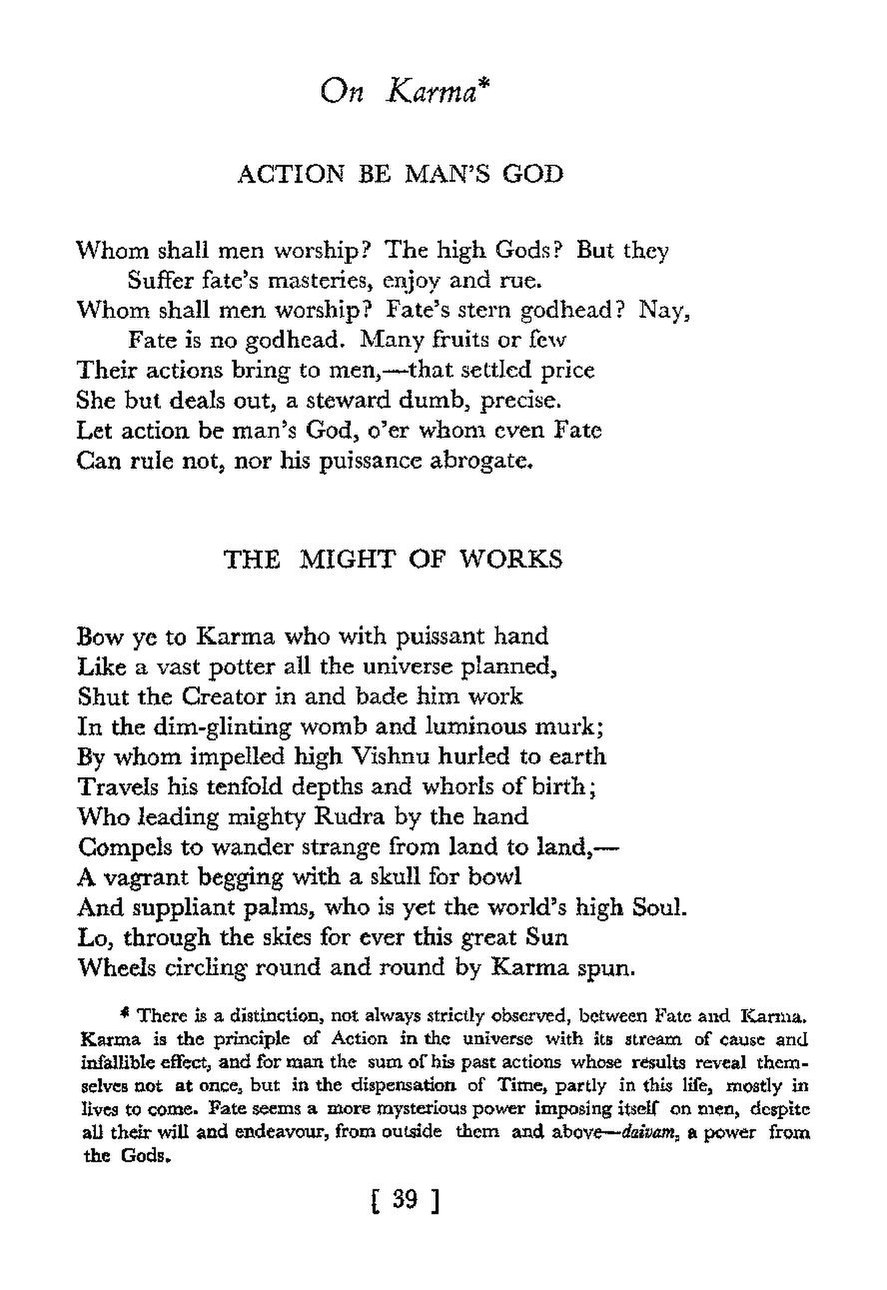On Karma*
ACTION BE MAN’S GOD
Whom shall men worship? The high Gods? But they Suffer fate’s masteries, enjoy and rue.
Whom shall men worship? Fate’s stern godhead? Nay, Fate is no godhead. Many fruits or few
Their actions bring to men,—that settled price
She but deals out, a steward dumb, precise.
Let action be man’s God, o’er whom even Fate
Can rule not, nor his puissance abrogate.
THE MIGHT OF WORKS
Bow ye to Karma who with puissant hand
Like a vast potter all the universe planned,
Shut the Creator in and bade him work
In the dim-glinting womb and luminous murk; By whom impelled high Vishnu hurled to earth Travels his tenfold depths and whorls of birth; Who leading mighty Rudra by the hand
Compels to wander strange from land to land,— A vagrant begging with a skull for bowl
And suppliant palms, who is yet the world’s high Soul. Lo, through the skies for ever this great Sun Wheels circling round and round by Karma spun.
- There is a distinction, not always strictly observed, between Fate and Karma,
Karma is the principle of Action in the universe with its stream of cause and infallible effect, and for man the sum of his past actions whose results reveal them- selves not at once, but in the dispensation of Time, partly in this life, mostly in lives to come. Fate seems a more mysterious power imposing itself on men, despite all their will and endeavour, from outside them and above—daivam, a power from
the Gods.
[ 39 ]
